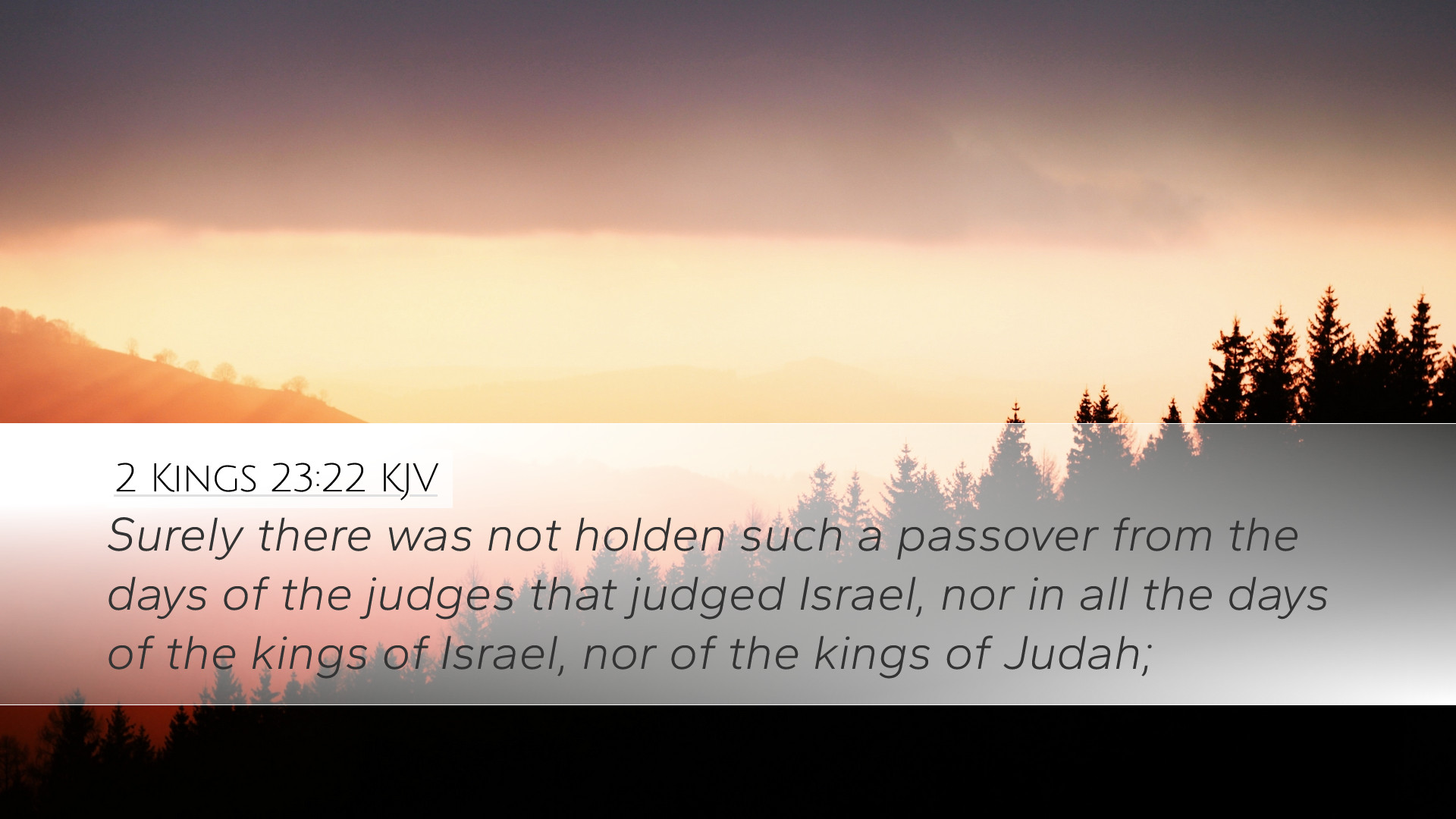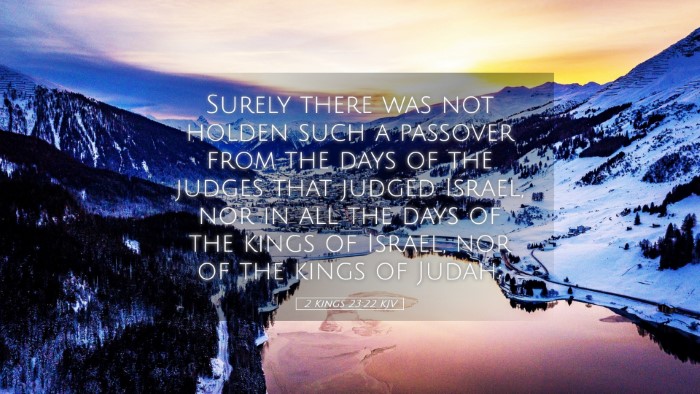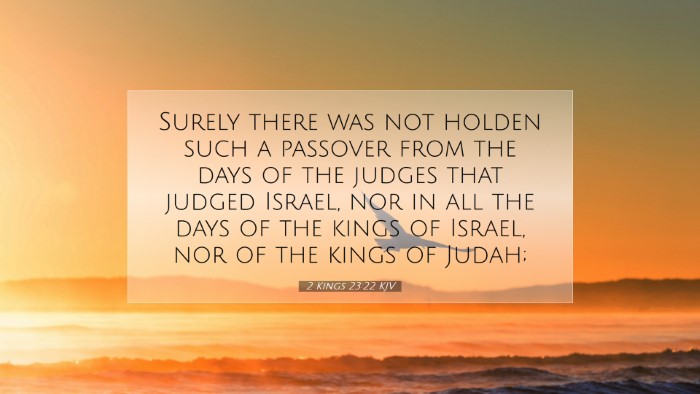Commentary on 2 Kings 23:22
Verse: "Surely there was not holden such a passover from the days of the judges that judged Israel, nor in all the days of the kings of Israel, nor of the kings of Judah."
Introduction
The verse from 2 Kings 23:22 is a pivotal reminiscence of Israel’s history, highlighting the significance of a Passover celebration under King Josiah’s reforms. This commentary draws insights from public domain sources, such as Matthew Henry, Albert Barnes, and Adam Clarke, to present an elaborate examination of the historical and theological implications inherent in this verse.
Historical Context
2 Kings 23 is set against the backdrop of Judean apostasy followed by a revival under King Josiah. The king’s desire to restore true worship after discovering the Book of the Law is crucial. The Passover mentioned signifies more than a feast; it embodies God’s covenant with Israel and the remembrance of the Exodus, the central event of their national identity.
- Matthew Henry: Henry asserts that the celebration of Passover symbolizes a return to covenant faithfulness after a period of neglect and idolatry. It is paramount to understand that true worship is rooted in obedience to God's commandments.
- Albert Barnes: Barnes emphasizes that the Passover at this time was unparalleled due to its adherence to the Law and the accompanying purifying actions by King Josiah. It marked a time of renewal and restoration.
- Adam Clarke: Clarke notes how this observance was significant due to the engagement of the people and the participation of the Levites, underscoring the importance of communal worship in Israel’s national identity.
Theological Significance
This verse articulates profound theological themes relating to covenant faithfulness and divine grace. The unprecedented celebration of the Passover suggests a reawakening of the nation's spiritual fervor, recognized by God.
- Covenant Renewal: The act of observing Passover is an indicator of Israel’s recommitment to God's covenant. As noted by Henry, it signals a collective acknowledgment of their obligations under the Law.
- Redemptive Historical Context: Barnes points out that the timeline of this Passover recalls the redemptive history tied to the Exodus. It serves as a typological foreshadowing of future Passovers leading ultimately to Christ's redemption.
Comparative Observances
The passage indicates that there hadn't been a Passover celebrated "such as this" since the times of the judges, emphasizing its uniqueness in Israel's history. Theological implications arise from the comparison to earlier observances.
- Judges Era: During the times of the judges, worship was sporadic and influenced heavily by local customs, often leading to idolatry. The contrast highlights how far Israel had strayed from true worship.
- Kings of Israel and Judah: The absence of such a significant Passover argues against the prior kings’ failures to uphold God’s prescriptions, illustrating a stark contrast in worship practices.
Josiah's Reformative Role
King Josiah emerges as a significant figure of reform, demonstrating what true leadership looks like in spiritual matters. His actions pave the way for this unprecedented Passover.
- Leadership in Worship: Clarke highlights Josiah’s role in not only re-establishing the Passover but also in encouraging the participation of the people, thus reinforcing the communal aspect of faith.
- Recognition of Failure: The passage illustrates that a prerequisite for revival is acknowledgment of past failures. Worship must be intentional and directed toward God’s holiness, as seen through Josiah’s reforms.
Conclusion
2 Kings 23:22 provides a lens through which we can examine the nature of worship, the importance of covenant renewal, and the impact of leadership on a nation’s spiritual health. Through the insights of Matthew Henry, Albert Barnes, and Adam Clarke, we are reminded that the observance of faith signifies more than tradition; it is an affirmation of our relationship with God and a commitment to His ways. As contemporary believers, this passage calls us to examine our own worship practices, seeking to align them with God's design for His people.


